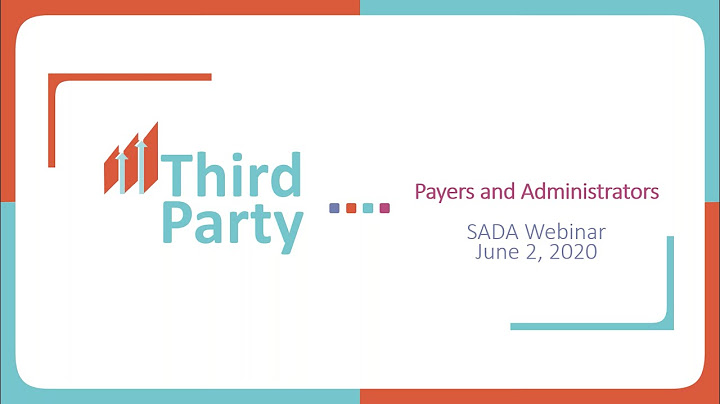One of the first questions many people have when they’re considering substance abuse, mental health, or behavioral health treatment is whether or not their insurance company will entirely or partially cover the cost. Blue Cross Blue Shield (BCBS) is accepted in all 50 states and covers more than 100 million Americans. BCBS is made up of more than 35 independent and locally operated agencies, and more than 96 percent of hospitals and 92 percent of healthcare providers work directly with a BCBS agency. Blue Cross Blue Shield is accepted, at least on some level, by most addiction treatment centers, although coverage can vary widely from state to state. Show
The Mental Health Parity Act stops discrimination so that mental health treatment and substance abuse/addiction treatments are considered equal to treatment for medical health issues. In the past, insurers could place higher co-pay prices on mental health services and employers could limit the number of days their employees were hospitalized and/or attending outpatient services. These historical moves have made it much easier to obtain care. Lower prices and better cooperation within the workplace can help clients get the help they need sooner. Oftentimes only a portion of detox, addiction treatment, or mental health treatment will be covered by your insurance. It’s important to speak with your insurance company to determine your exact level of coverage and to understand what that translates to in terms of the amount you will pay out of pocket. Let’s get started with some common terms and definitions: Copayment: a fixed dollar amount you are required to pay for covered services at the time you receive care. Deductible: a fixed amount of the eligible expenses you are required to pay before reimbursement by your health plan begins. In-network: services provided by a physician or other health care provider with a contractual agreement with the insurance company and paid at a higher benefit level. Out-of-network: services provided by doctors and hospitals who have not contracted with your health plan. Out-of-pocket maximum: also called OOPM, this is the most you have to pay out of your own pocket for expenses under your insurance plan during the year. Deductibles, coinsurance, copays and other expenses for in-network essential health benefits (EHBs) apply to the OOPM. Preauthorization: the process by which members or their primary care physicians (PCP) notify the health plan in advance of treatment plans, such as a hospital admission or a complex diagnostic test. Also called pre-notification. Premium: the ongoing amount that must be paid for your health insurance or plan. You and/or your employer usually pay it monthly, quarterly or yearly. The premium may not be the only amount you pay for insurance coverage. Typically, you will also have a copayment or deductible amount in addition to your premium. Blue Cross and Blue Shield of Illinois (BCBSIL) offers three levels of healthcare plans; Bronze, Silver, and Gold. All three plans cover essential health benefits, including mental health and substance abuse disorders, but the out of pocket costs for these benefits can vary depending on your plan. Bronze Plans have the lowest premium costs but the highest out-of-pocket costs once you receive care. The plan pays about 60% while you pay about 40%. Silver Plans have higher premium costs than Bronze plans, but lower out-of-pocket costs than Bronze plans. The plan pays about 70% while you pay about 30%. Gold Plans have the highest premium costs and the lowest out-of-pocket costs, with the plan paying about 80% while you pay around 20%. BCBS plans typically fall into two categories: an HMO (Health Maintenance Organization) plan, or a PPO (Preferred Provider Organization) plan. An HMO plan gives its members access to certain doctors and facilities who have agreed to lower their rates for plan members. An HMO plan usually only covers doctors and facilities within their network. PPO plans have more options regarding the number of providers members can access. With a PPO plan, covered individuals can be treated by a facility that is out-of-network, however, the expenses to the member will be considerably higher. Before you choose a health plan, you may want to check if your doctor or hospital is in the network. BCBSIL has networks in Chicago, Rockford and all around Illinois. If you visit a doctor outside of your network, you may have to pay more for your care. In some cases, you may have to pay the whole bill. Blue Cross Blue Shield Illinois Medicare/Medicaid PlansFor BCBSIL Medicare/Medicaid plans, some of the covered services include:
Substance abuse treatment for the following are also covered:
What is not covered?Examples of services this plan does not cover are:
Blue Cross Blue Shield Illinois Community Health PlansFor BCBSIL Community Health Plans, you do not need a referral for a provider that is the plan network. Some of the covered services include:
What is not covered?Examples of services this plan does not cover are:
Is Residential Treatment Covered by BCBS Illinois?Residential Treatment is generally covered, and benefits include room and board, general nursing service, therapy services, and other ancillary services. Preauthorization is generally required. If preauthorization is not obtained, benefits will be denied. Every insurance plan is different, so the amount your insurer is willing to cover will vary depending on your provider. There may be a limit on how much is covered, and certain therapies may be excluded. We will verify your insurance at no cost, and are happy to discuss your payment needs with you. Does BCBS of Illinois cover therapy?Yes, Blue Cross Blue Shield of IL Blue Choice provides coverage for mental health services including therapy. Some plans offered through Blue Cross Blue Shield of IL Blue Choice help pay for therapy sessions when its members see either in-network or out-of-network therapists.
Does insurance cover therapy in Illinois?In Illinois, every insurer that offers individual or group health insurance coverage is required to provide coverage based on medical necessity for the treatment of a mental, emotional, nervous, or substance use disorder or condition.
Does Blue Cross Blue Shield Illinois cover psychiatrist?Yes, BCBSIL does cover mental health treatment in many cases [1]. The exact details of your coverage will depend on your plan, so be sure to consult your plan documents for specifics.
Is telehealth covered by BCBS Illinois?Your employees' health care coverage may include virtual visits, either with their own doctors or with our Virtual Visits solution. Telemedicine and Telehealth medical services and procedures are covered under some Blue Cross and Blue Shield of Illinois (BCBSIL) health care plans as in-network doctor visits.
|

Related Posts
Advertising
LATEST NEWS
Advertising
Populer
Advertising
About

Copyright © 2024 paraquee Inc.


















